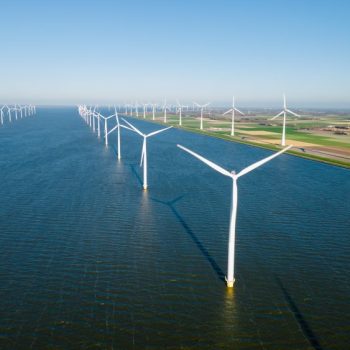
- Science Based Targets initiative confirms Beiersdorf Group-wide CO2 reduction targets aligned with independent climate scientists’ consensus on 1.5°C scenario
- Beiersdorf Consumer and tesa want to reduce energy-related greenhouse gas (GHG) emissions by 30 percent absolutely (Scopes 1 and 2) by 2025 and cut supply chain emissions (Scope 3) by 10 percent
- Beiersdorf Consumer Segment with new Sustainability Agenda CARE BEYOND SKIN aims for 30 percent reduction in Scope 3 emissions by 2025
On June 18th Beiersdorf Group has publicly committed to new, ambitious climate targets, thus contributing to limiting global warming to 1.5°C. The entire Group plans a significant reduction across the full spectrum of its CO2 emissions by 2025, which applies equally to both its Consumer and tesa Business Segments. Energy-related emissions (Scopes 1 and 2) are to be reduced by 30 percent in absolute terms by 2025. In addition, a clear cut is also planned in Group-external CO2 emissions (Scope 3), by suppliers and service providers, for example: The Group has set a value chain GHG emissions-reduction target of 10 percent by 2025.
These ambitious climate targets have now been officially endorsed by the “Science Based Targets initiative” (SBTi), meaning this organization confirms that Beiersdorf’s targets are aligned with independent global climate scientists’ latest findings. To date, 111 companies worldwide have set themselves targets that received SBTi approval. Currently only eight companies headquartered in Germany are among these, with just a further eight around the world from the “Consumer Products & Durables” sector.
“Climate change confronts us as a society with tremendous challenges. We are taking action based on our sense of duty and our unshakeable belief that we must commit fully and immediately to climate protection, to counteract global warming and its severe consequences,” explains Stefan De Loecker, Chairman of the Beiersdorf AG Executive Board. “The official endorsement by the SBTi of our new, ambitious climate targets is welcome confirmation that we are on the right track to actively co-shape a sustainable future for our global society.”
In addition to the SBTi’s endorsement of climate targets for the entire Beiersdorf Group, the Consumer Business Segment has set itself the target of a 30 percent absolute reduction in its Scope 3 emissions by 2025. On top of this, all Consumer Business Segment production sites are to become climate-neutral by 2030.
Beiersdorf signed the “Business Ambition for 1.5°C” at the UN Climate Change Conference in Madrid in December 2019, thereby committing itself to the formulation of new, ambitious climate protection targets. As part of the agreement Beiersdorf also signed the long-term voluntary commitment to achieve “net zero emissions” by 2050 latest.
Beiersdorf, and in particular its Consumer Business Segment, has made major progress in recent years in reducing its CO2 emissions: The Group successfully cut its energy-related CO2 emissions by 60 percent in absolute terms between 2014 and 2019. Various energy-saving measures, the LEED seal-winning sustainable design of production and office locations, and the transformation to green logistics are just a few examples of the Beiersdorf Group’s uncompromising climate protection program. Since the end of 2019, 100 percent of the electricity purchased worldwide comes from renewable energy sources.
In its CARE BEYOND SKIN sustainability agenda, launched at the beginning of this year, Beiersdorf is bundling its climate commitment and action measures in the focus area “For a Carbon Positive Future”. Alongside the central issue of climate change, this sustainability agenda defines a further six focus areas in which the Group’s Consumer Business Segment, comprising the well-known brands NIVEA and Eucerin, is committed to making a meaningful and measurable contribution to the environment and society.
Also the tesa Business Segment has been implementing numerous measures to increase energy efficiency and reduce CO2 emissions in the past years. For example, specific CO2 emissions per ton of end product have been reduced by 34.5 percent since 2015, saving almost 60,000 tons of CO2 per year. At present, 27 percent of electricity is used from renewable sources and 38 percent is produced by combined heat and power generation (CHP)… You could find more about this article to the website beiersdorf.com HERE













